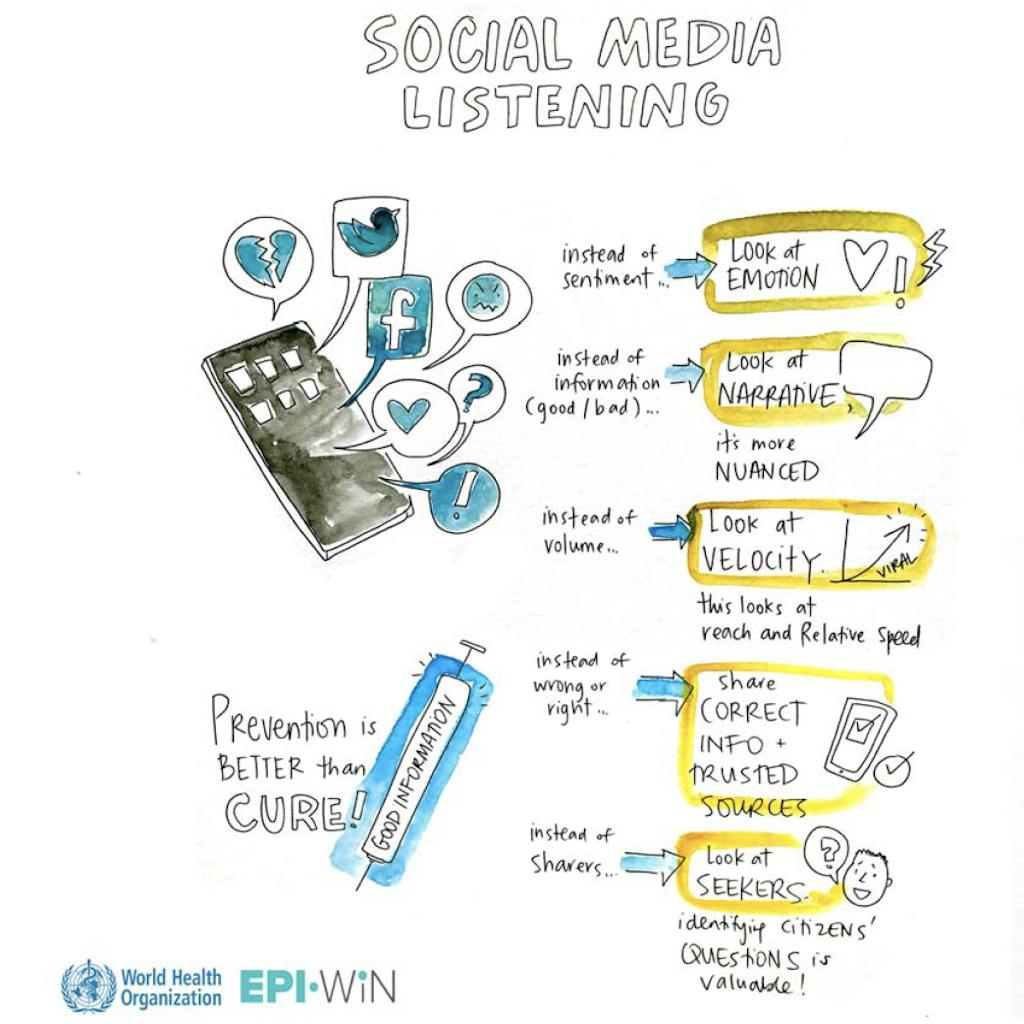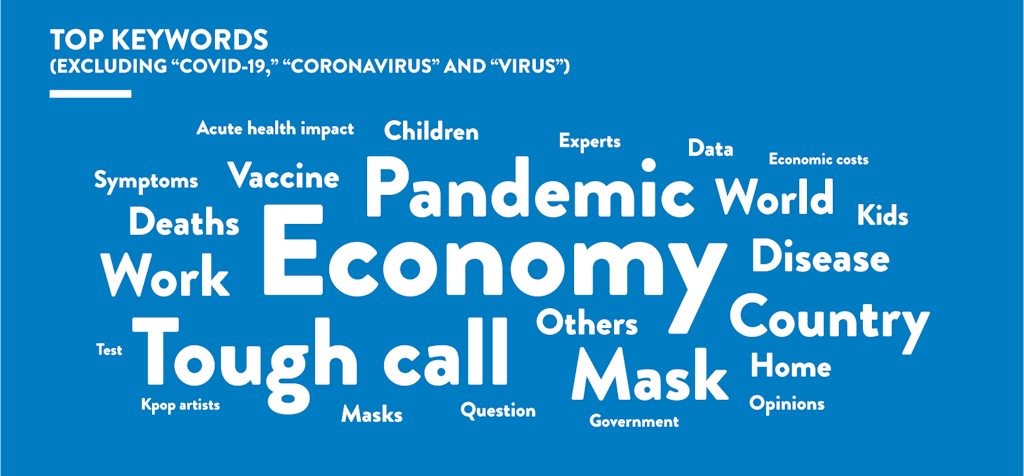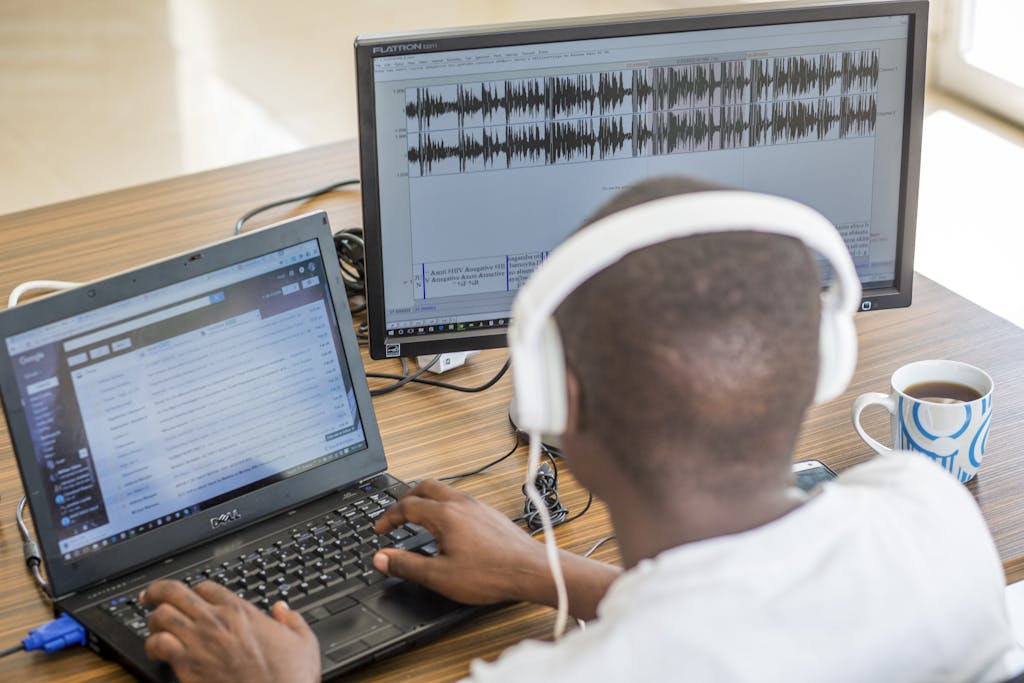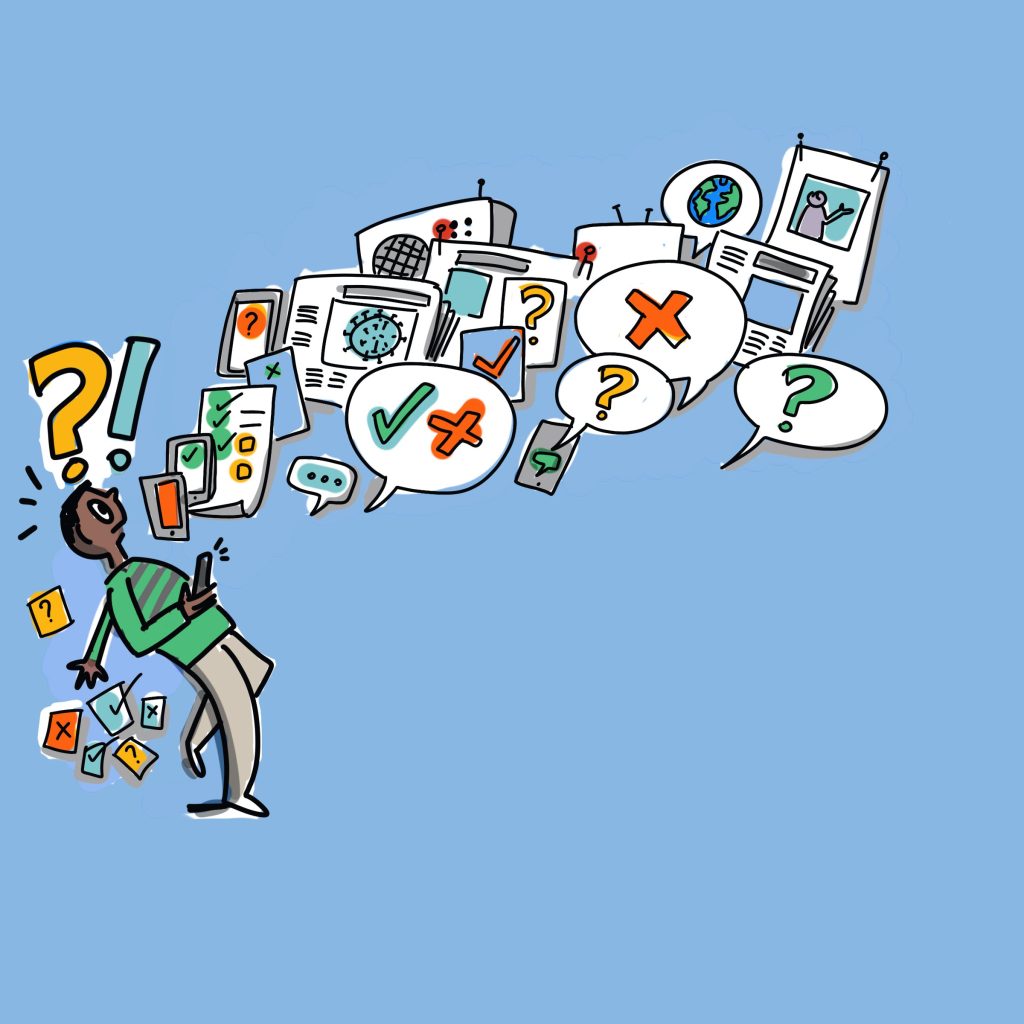in addition to main the worldwide wrestle in opposition to COVID-19, the World well being group is at risk of be investing time and sources to deal with the quick unfold of misinformation, rumors, and conspiracy theories regarding the virus.
quickly after the world started getting used to the phrases “coronavirus” and “COVID-19,” the World well being group (WHO) coined one other phrase: “infodemic” — an overabundance of knowledge and the quick unfold of deceptive or fabricated information, pictures, and movies. simply like the virus, it is extremely contagious and grows exponentially. It additionally complicates COVID-19 pandemic response efforts.
“We’re not simply battling the virus,” said WHO Director-primary Tedros Adhanom Ghebreyesus. “We’re additionally battling the trolls and conspiracy theorists that push misinformation and undermine the outbreak response.”
Proliferating misinformation — even when the content material is, in a best-case state of affairs, innocent — can have critical and even social and lethal well being ramifications inside the context of a worldwide pandemic. In some nations, rumors about impending meals scarcity prompted people to stockpile gives early on inside the epidemic and prompted exact shortages. inside the us, an Arizona man died after ingesting a fish tank cleansing product containing chloroquine after listening to President Donald Trump tout a associated drug, hydroxychloroquine, as a doable COVID-19 remedy. In Iran, lots of died after consuming methanol alcohol that social media messages said had cured others of the coronavirus. that is the variety of dangerous misinformation that who’s most anxious about.
whilst a consequence of the world is laser-centered on the search for a protected, efficient vaccine, misinformation continues to unfold about immunization as effectively. well being consultants in Germany are involved that the nation’s anti-vaccination movement might deter many people from getting immunized when a protected vaccine turns into out there. A latest research that examined the vaccination views of one hundred million fb prospects globally found that whereas the expert-vaccination camp (6.9 million people) outnumbered these in opposition to vaccination (4.2 million), the anti-vaccine group was much less remoted and had extra interplay with the people (by far the most very important group, at seventy 4.1 million) who’re undecided about vaccination. These “swing vaxxers” are important to focus on and get on board with lifesaving vaccination.
To study extra about how who’s taking on the infodemic wrestle, the United Nations basis caught up with Tim Nguyen on the sidelines of the world’s first infodemiology convention, which launched collectively world consultants to debate the growing science of managing infodemics. Nguyen’s crew manages the knowledge community for Epidemics (EPI-WIN), which is main WHO work on managing infodemics.
COMBING by way of the on-line OF MISINFORMATION
“Infodemics have already occurred in a method or one other in previous epidemics, however what’s taking place proper now might be one factor of a worldwide scale, the place individuals are linked by way of utterly different means and share knowledge extra quickly,” Nguyen said. “This has created a mannequin new state of affairs the place we’re rethinking and reshaping our method to managing infodemics in emergencies.”
in accordance with a latest research evaluating English-language misinformation, the most very important class of posts labeled as false or deceptive by actuality-checkers was content material that deliberately challenged or questioned insurance coverage policies and actions of public officers, governments, and worldwide institutions akin to a consequence of the United Nations and WHO.

One flagrant event of that is “Plandemic,” a 26-minute conspiracy idea video that falsely accuses Dr. Anthony Fauci, the main infectious illness expert inside the us, of producing the virus and sending it to China. the identical video falsely claims that sporting masks will lead to self-an infection. larger than eight million people watched the video throughout social media earlier than it was taken down.
Such content material can erode public notion inside the very organizations main the wrestle in opposition to COVID-19. To remind the remaining public of the primacy of science, WHO first pinpoints what variety of misinformation is floating on the market after which responds with its personal proof-primarily based steering. the broader United Nations group has been serving to amplify this knowledge by way of its personal anti-misinformation initiative Verified. for event, the initiative’s “Pause. Take care earlier than you share” advertising campaign encourages people to take time to confirm sources earlier than deciding whether or not to share any content material on-line.
WHO has additionally been working carefully with social media and tech firms to assist curb amongst the numerous misinformation spreading on their platforms. In February, officers from the well being agency met at fb’s headquarters about how one can promote appropriate well being particulars about COVID-19. Now, who’s working with larger than 50 digital firms and social media platforms collectively with TikTok, Google, Viber, WhatsApp, and YouTube to make optimistic that science-primarily based well being messages from the group or utterly different official sources seem first when people search for knowledge associated to COVID-19. Even the relationship app Tinder now options WHO well being reminders, as a consequence of social distancing continues to be relevant all by way of a date.
SOCIAL LISTENING WITH synthetic INTELLIGENCE
“Countering pretend information or rumors is unquestionably solely responding or mitigating when it’s too late,” said Nguyen. “What we’ve put in place to start with of the pandemic is what we name a social listening method.”
who’s working with an analytics agency to incorporate social listening into its public well being messaging progress — a important for the group.

every week, the agency opinions 1.6 million objects of knowledge on various social media platforms, then makes use of machine studying to conduct searches primarily based on a newly developed public well being taxonomy to categorize knowledge into 4 matters: the set off, the sickness, the interventions, and the remedy. This helps WHO monitor public well being matters that are gaining recognition and develop and tailor well being messages in a well timed method. Examples embody “How does a pandemic finish?” and “How can all of us know after we have now a second wave of the virus?”

Machine studying additionally gives insights into what types of feelings prospects are experiencing. rather than merely dividing the knowledge by variety of sentiment (optimistic, impartial, adverse), language analytics could clarify anxiousness, disappointment, denial, acceptance, and utterly different feelings expressed in social media posts. This stage of element permits WHO to develop an environment nice offensive method and assuage the remaining public’s considerations earlier than misinformation can buy steam.
“What we’ve realized now, after two and a half months of doing this variety of evaluation, is that there are recurring themes and matters that are coming again many instances,” Nguyen said. “What which means to us is that we have now to re-push knowledge at utterly different instances. people might not realize it the important time after we push it, however when the questions and factors come up later, it means it’s time to push it out as quickly as extra.”
Not everyone has entry to social media or the on-line, however they proceed to be simply as inclined as anyone else to being uncovered to misinformation. to beat this digital hole, who’s working with colleagues from the UN worldwide Pulse initiative, which makes use of synthetic intelligence and huge knowledge to deal with progress and humanitarian factors and to use social listening to nations the place radio is a most effectively-appreciated medium of knowledge.
In Uganda, for event, larger than half of households rely upon radio for his or her information, and 1000’s of Ugandans name into native purposes on daily basis to focus on factors from basically the most mundane to critical matters akin to well being care. The Kampala department of UN worldwide Pulse makes use of an automated speech recognition computer software powered by synthetic intelligence to translate the radio recordings from the native dialect into digital English textual content material. The initiative was featured inside the UN basis’s Innovation in movement sequence final 12 months, showcasing how the UN is leveraging innovation and up thus far considering to deal with the world’s most pressing challenges.

The UN worldwide Pulse crew is now using the computer software to decide COVID-associated language in Uganda and any misinformation that native communities are spreading. The crew found that native communities had been promoting witchcraft and herbs as COVID-19 cures; there have been even rumors circulating a few vaccine being manufactured in Uganda. this variety of knowledge is invaluable for organizations akin to WHO to inform their messaging and steering progress. who’s working with the UN to scale up and pilot this mission for two further nations in sub-Saharan Africa and two in Southeast Asia.
“it is best to have a sure diploma of fantastic knowledge on the market to attain populations so as that they are inoculated and by no means inclined to pretend information or disinformation,” Nguyen said. “we have now to vaccinate 30% of the inhabitants with “good knowledge,” to be succesful to promote proof-primarily based advice and steering.”
That’s the place the native people turns into particularly essential in serving to to amplify WHO’s messaging.
INCORPORATING group VOICES
Since a lot misinformation originates in communities and might unfold in private messaging and conversations amongst buddies and households, WHO encourages people to actuality-confirm their relations when essential. They’ve created a devoted website of “Mythbusters,” that consists of actuality-primarily based options to basically the commonest misconceptions about COVID-19, collectively with: whether or not footwear can unfold the virus (very low probability), if sizzling baths can maintain the mannequin new coronavirus at bay (no, and probability is you may get burned), and if hand dryers can kill the virus (no, they don’t).
whereas who’s accustomed to working with well being ministries and utterly different authorities our bodies and officers to develop and amplify public well being messaging, Nguyen said that in a disaster of the magnitude of COVID-19, a full-of-society method is important to confirm all communities are reached. for event, rather than a prime-down method, WHO works with particular teams akin to youths, journalists, and religion-primarily based organizations to co-develop steering that is tailored to every context and group. These teams function amplifiers, transmitting appropriate well being knowledge to people organically.
Nguyen famous that on the worldwide stage, knowledge wants is at risk of be very utterly different. “Let’s take the hand-washing steering, for event. It’s essential and there’s a worldwide advice for a method prolonged and the method by way of which it is best to do it,” he said, “however let’s even be reliable. there are particular parts of the world the place it’s not doable to do it as useful.”
group leaders will assist tailor hygiene steering in contexts the place there’s most possible not enough water sources or cleansing soap to correctly wash palms, or in cramped situations the place social distancing might seem virtually unimaginable. Revised pointers co-developed by WHO and religion leaders embody changing greetings of bodily contact with a simple eye contact and bow; encouraging worshippers to finish ritual ablutions at dwelling rather than on the place of worship; and even offering ideas all by way of painful situations akin to how one can bury relations whereas abiding by COVID-19 restrictions.
“It’s important to work with these amplification teams that understand the people they look after significantly greater than we do,” Nguyen said. “We’re co-growing steering with people who’re straight affected and might assist us implement a sure observe that ends in conduct change.”
a mannequin new UN alliance to wrestle the the infodemic — comprising WHO, UNESCO, the worldwide Telecommunication Union, and UN worldwide Pulse — just these days obtained simply over $4.5 million from the COVID-19 Solidarity Response Fund to scale its group amplifier work, social listening initiative, and utterly different tasks collectively with the creation of a centralized actuality-checking and misinformation center to current nations with devices to deal with the infodemic. On June 29, WHO additionally organized the world’s first infodemiology convention, which launched collectively scientists from numerous backgrounds to give consideration to the drawback systematically and brainstorm science-primarily based methods to greater handle it.
“we have now physicists, mathematicians, sitting with epidemiologists, with social scientists to debate proof-primarily based approaches to handle the infodemic,” Nguyen said. “All of these scientific fields have their very personal schools of ideas, their frames, how they do evaluation, so it’s fascinating how one perspective will assist fertilize different.”
whereas a vaccine for COVID-19 mustn’t be ready but, WHO’s proactive steps are serving to to neutralize the infodemic of misinformation.
“To deal with this infodemic, we have now to do issues in any other case than we have now prior to now,” Nguyen said. “due to the management of Dr. Tedros, we’re more and more open to innovation and to rethink the method by way of which that we’re doing issues.”
how one will assist wrestle THE INFODEMIC
have you ever seen rumors, conspiracy theories, and misinformation about COVID-19 floating round in your networks? we have now, too. That’s an component of the motive we launched the COVID-19 Solidarity Response Fund, the important and largest contributor of versatile funding to assist WHO’s worldwide pandemic response, collectively with pushing again in opposition to the infodemic.
to this point, larger than half 1,000,000 people from over one hundred nations have donated. every dollar makes an impression. be a part of our solidarity movement by donating to the worldwide response to COVID-19.
you presumably can study extra about WHO’s life-saving work world large right here, and discover particulars of how funds are used to assist COVID-19 efforts right here.
Featured Illustration: Sam Bradd/WHO

